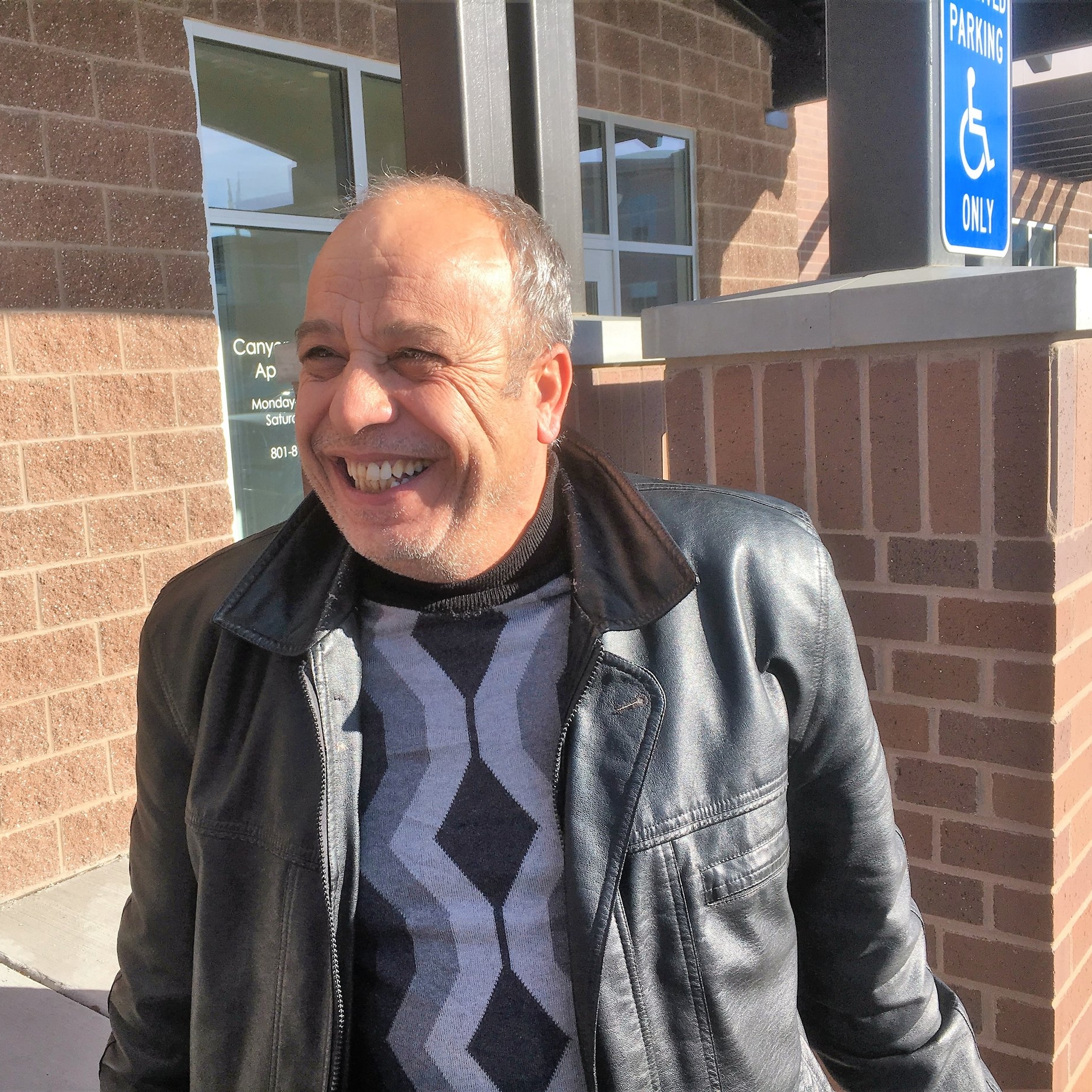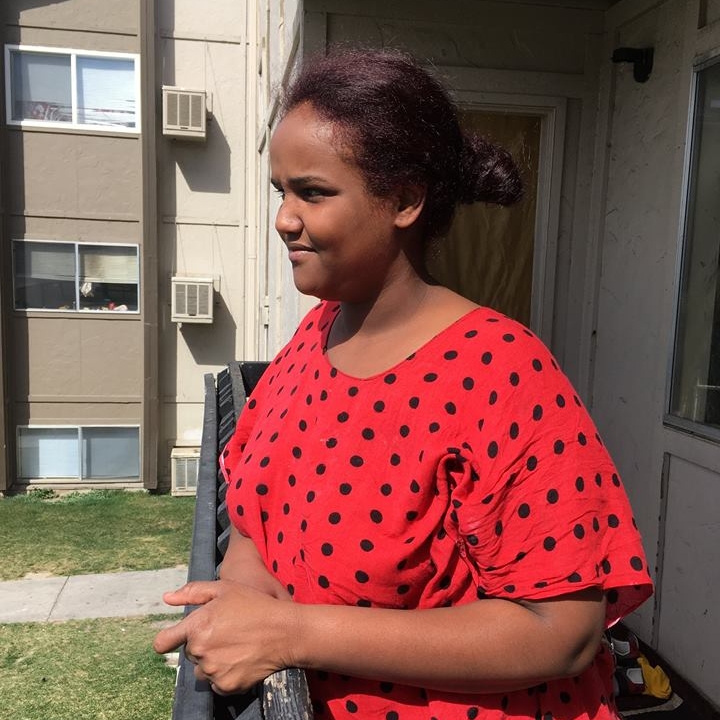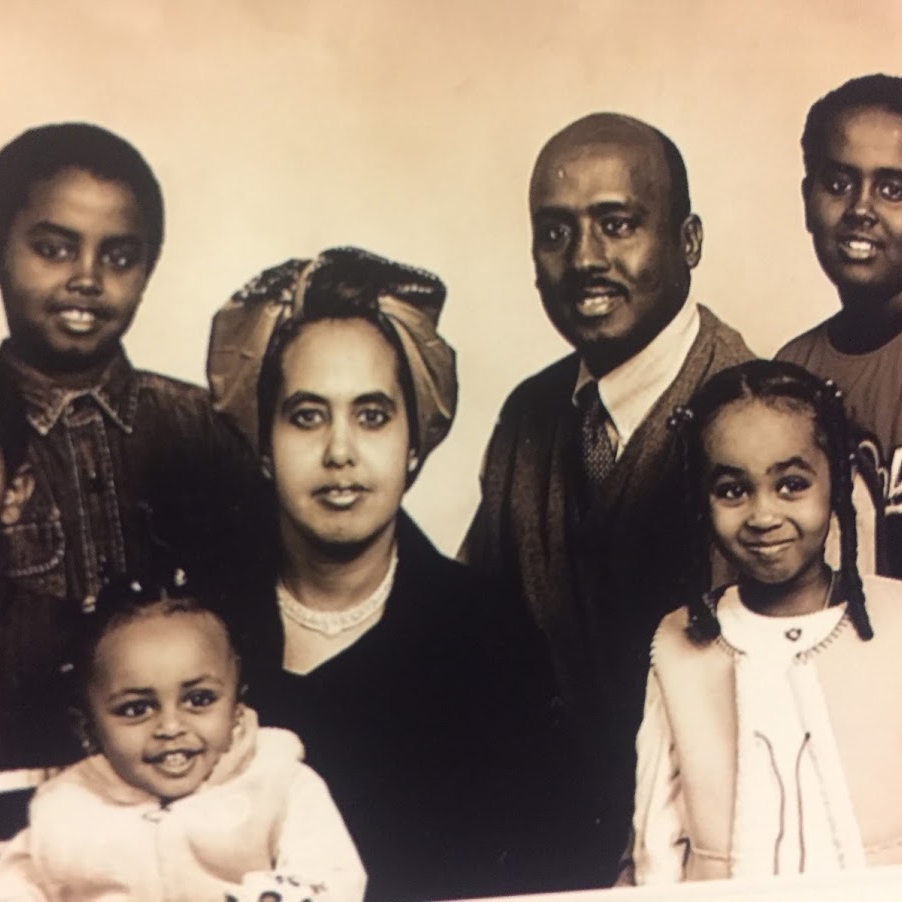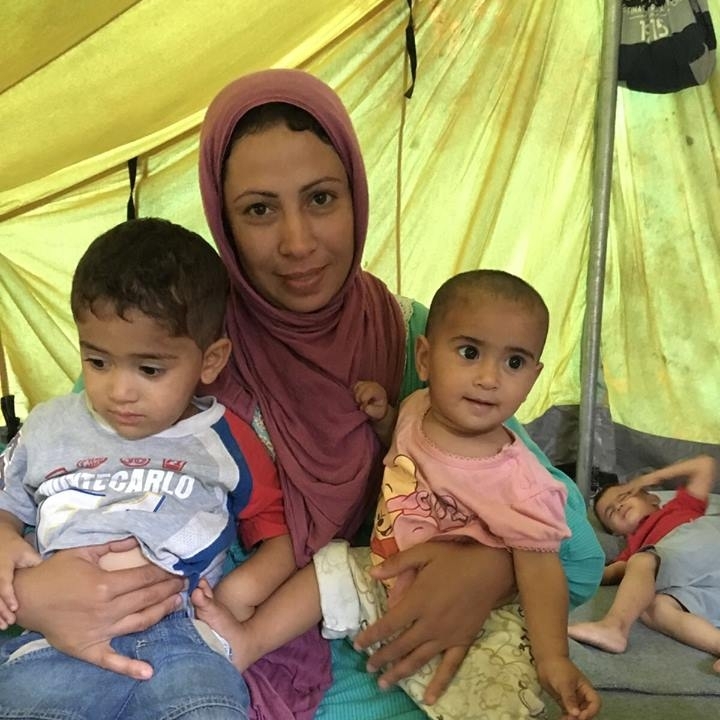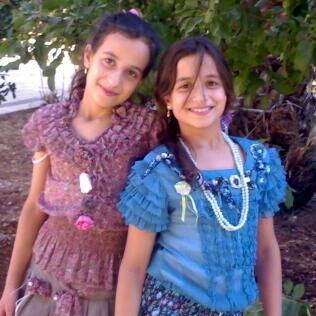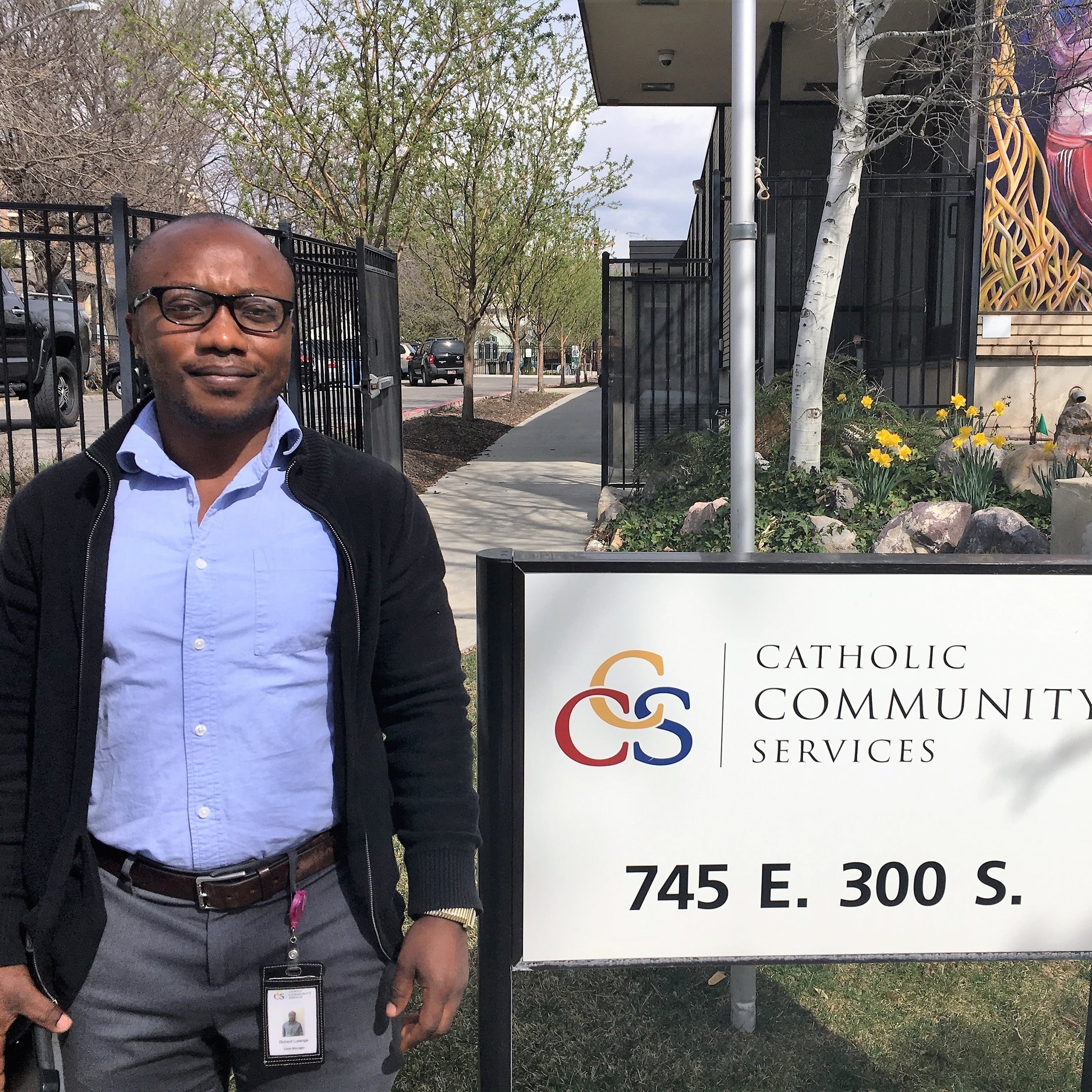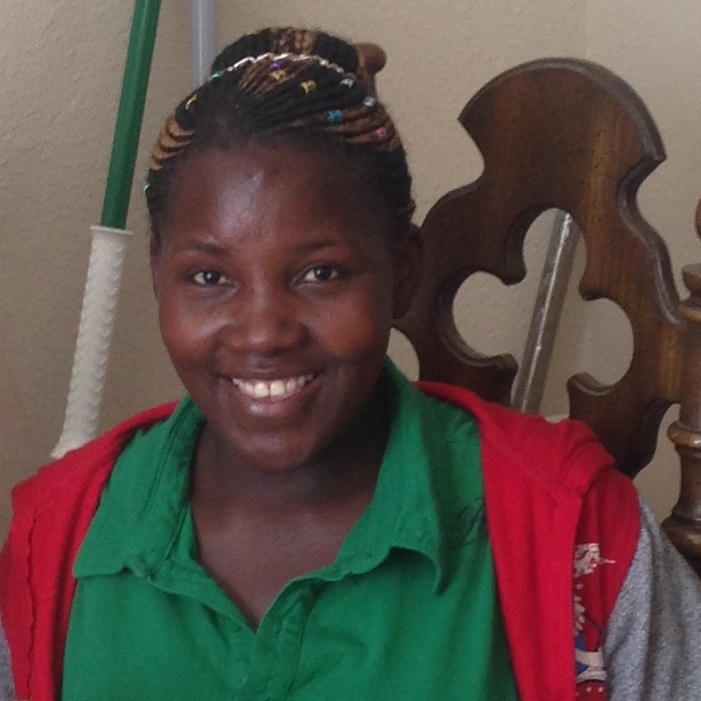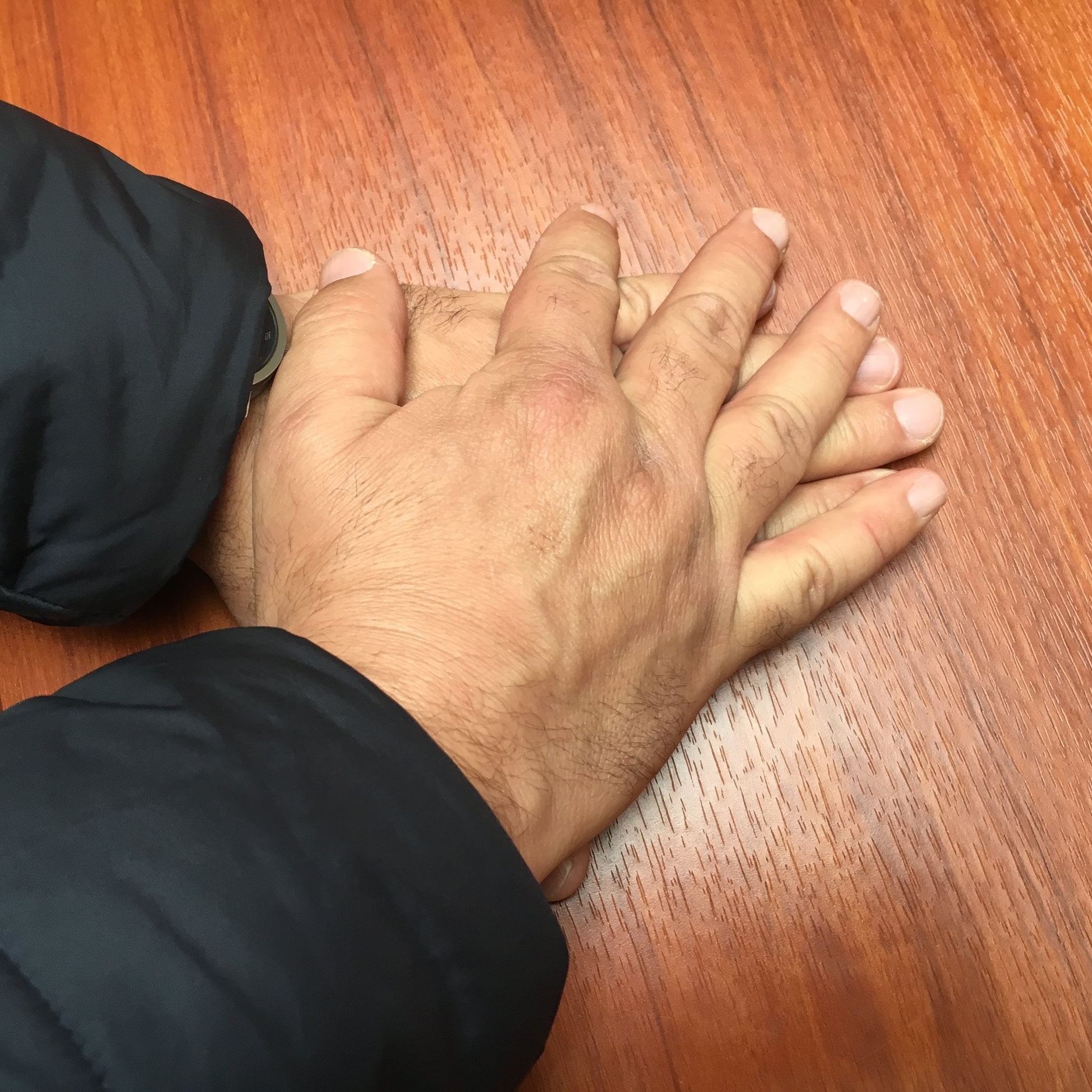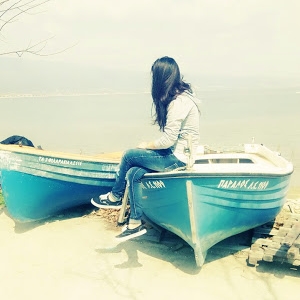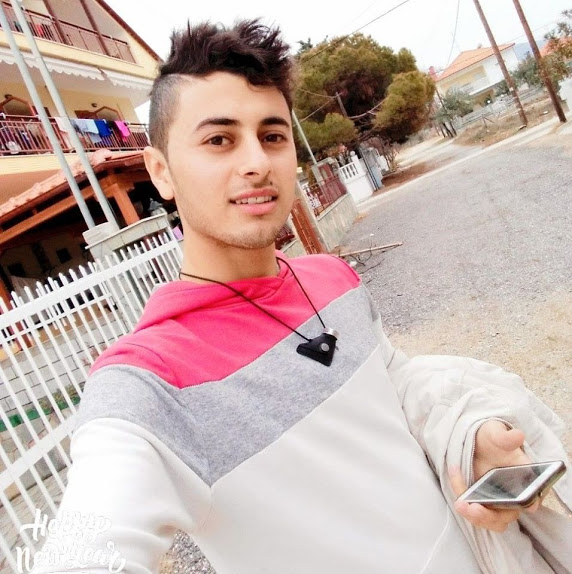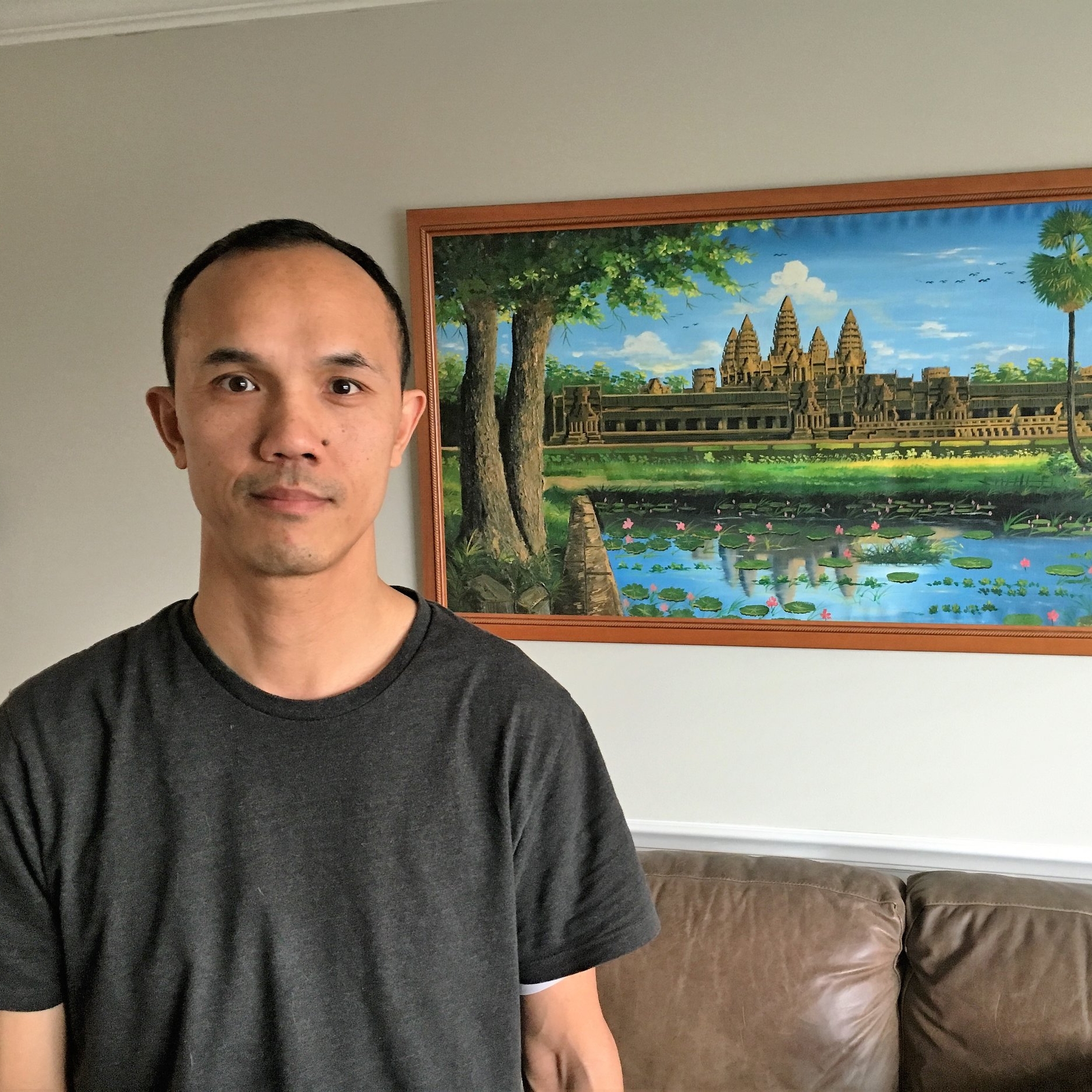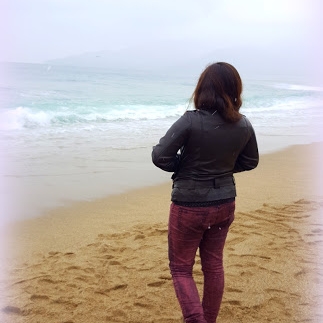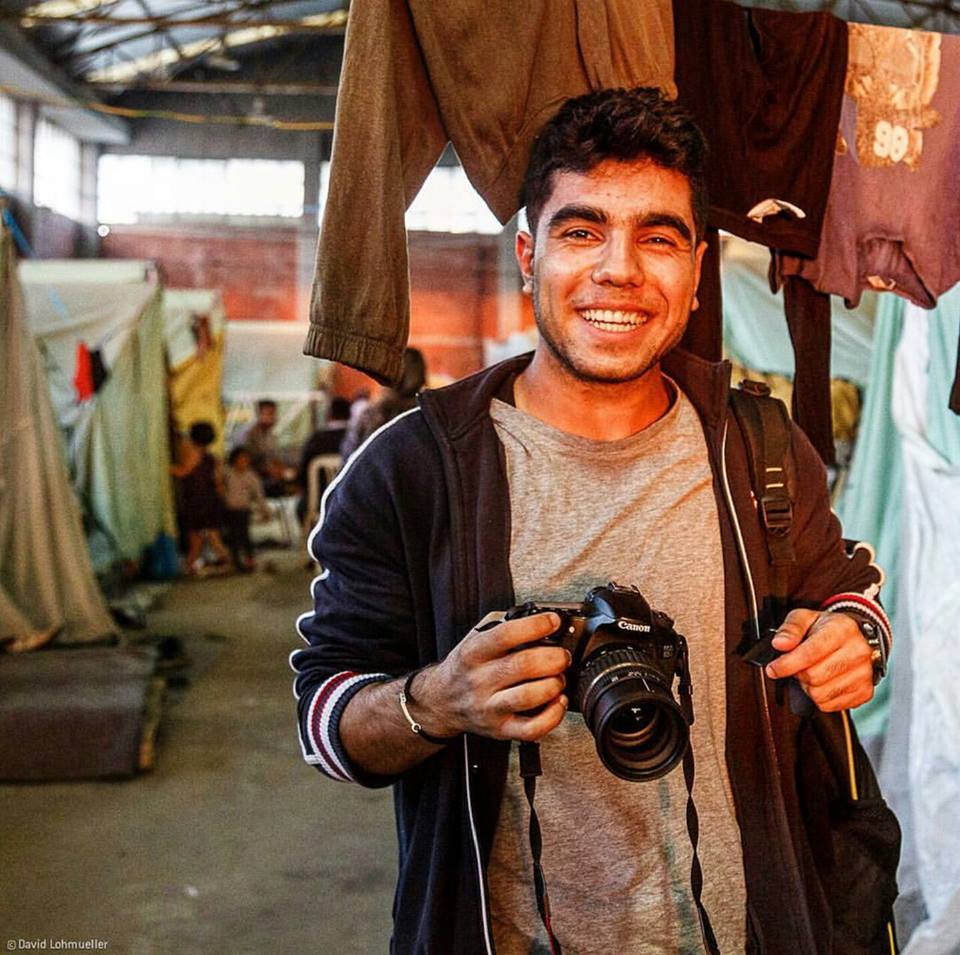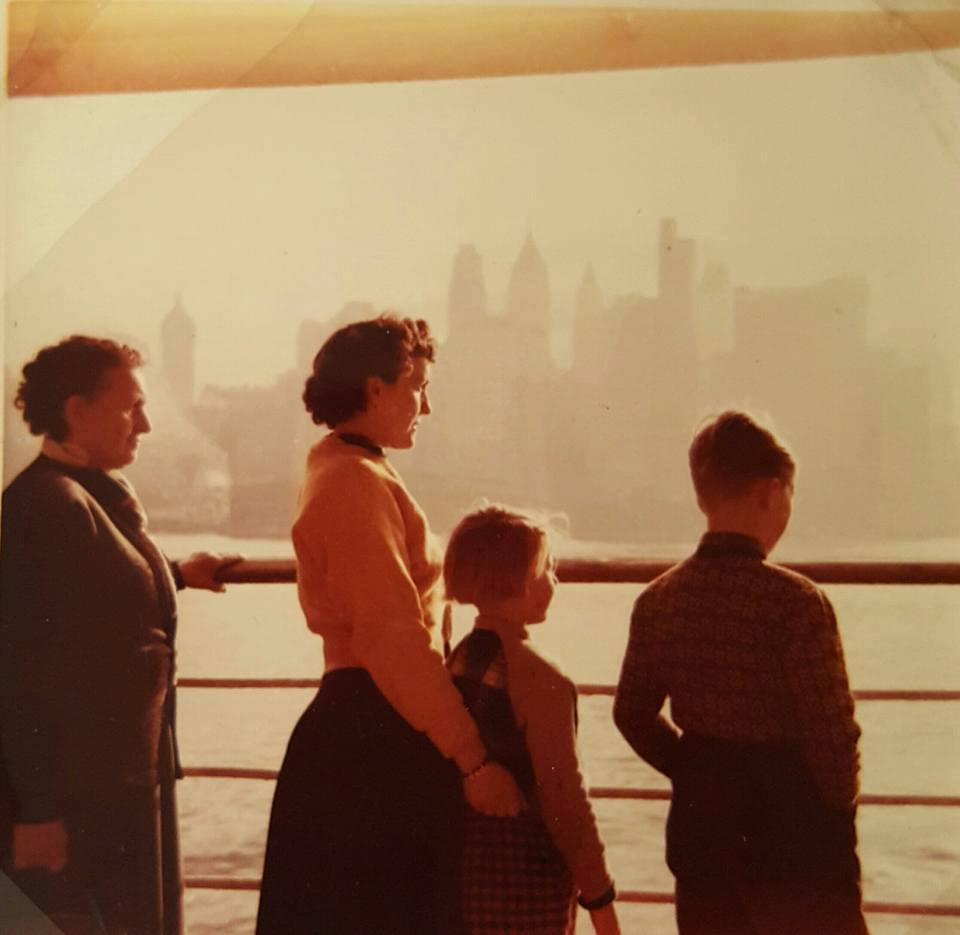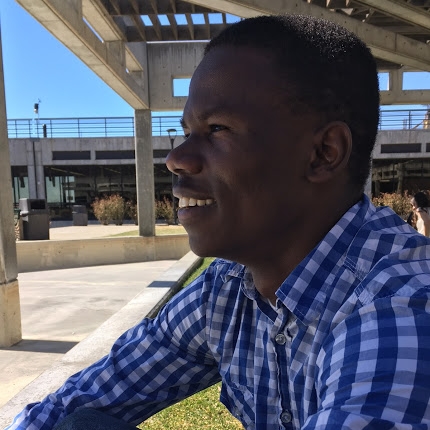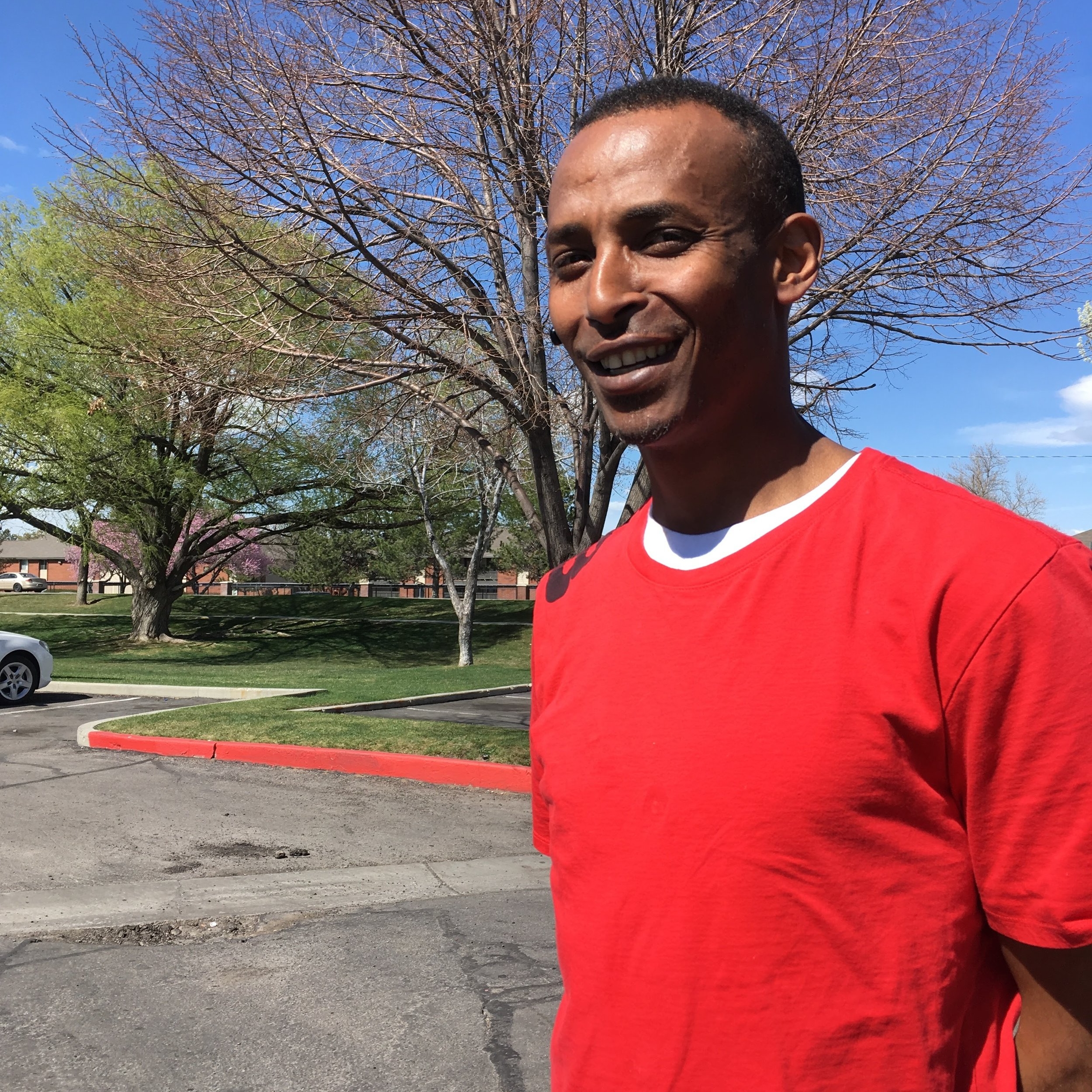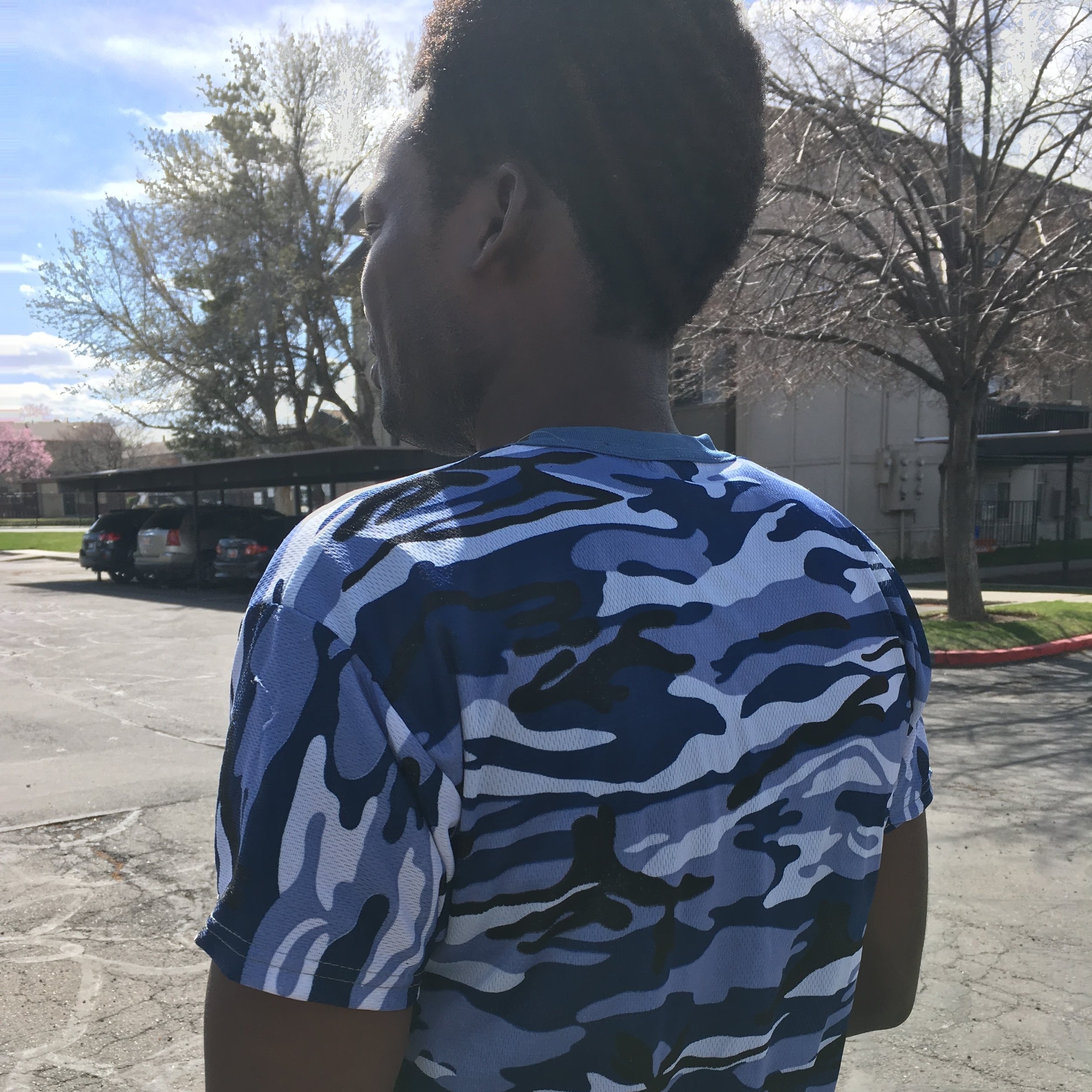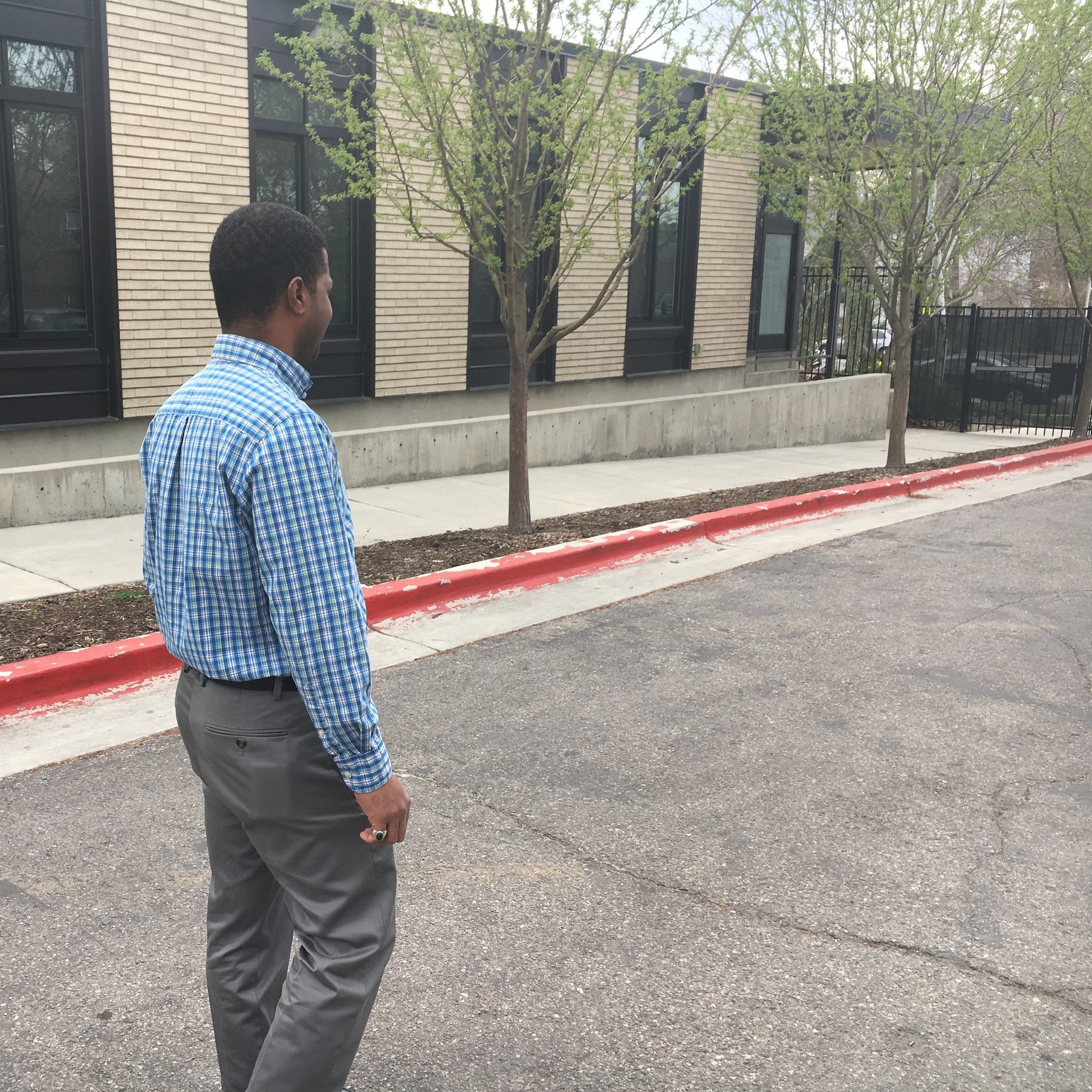“There were bombings nearby every single day and people were dying.”
“I was born in Somalia and lived in a town called Bidoah, which is south of Mogadishu, the capital. After high school and two years of national service, I moved to the capital to attend university. My mom had a family business, so I worked there until I finished college.
In 1990, The Civil War broke out between the militia and the government. The civilians were caught in the middle. There were daily bombings and I saw people die in the streets nearly every day. There was no water or electricity. There was a shortage of food; we had to eat what we had on hand at the time. After hiding in the city for two years, we fled. Just after we left, the government was overthrown and we thought the war had ended. We came back to the city thinking we would have a new government that would restore peace and order. However, a few days after we came back, the Civil War broke out again. The militia groups were fighting and the government groups were trying to come back. We left again.
We moved into a relative’s large home on the outskirt of the city. There were hundreds of other people living there, and it was kind of like a small refugee camp. Each day, one person would cook for the entire family using big pots of boiling water. One day, I went to the city to try and get food. As I returned that night, I learned that while I was gone, my two-year-old son had received severe burns throughout his entire body. He had been running through the house playing, and when he was in the kitchen he tripped and the large pot of boiling water spilled onto and severely burned his body. There were no hospitals operating at that time and there were no doctors. We could only give him the little medication we had on hand. There was no way I could get him out of the country because all the roads were blocked. He survived for one week and then passed away.
When I buried him, my wife and I talked about what we were going to do. We had lost our son. Should we wait until we lose another family member or should we leave? We decided then that I would leave.”
__________
““I risked my life to cross the border…””
I risked my life to cross the border between Somalia and Kenya. I couldn’t take my belongings or extra clothing because I would be looted or killed so I took only some small pocket money. I traveled in a cattle truck to the border town.
It took me several days to cross the border because there was conflict among the local tribes. I had to be very careful when I traveled among them. I spoke different dialects otherwise I would have been in danger. Luckily, I knew the area where I was traveling well. After several days and many forms of transportation, I finally crossed the border.
I could not go to Nairobi directly because there were so many Kenyan police in the road. I did not have any documents so I paid a truck driver to get me to Nairobi. For two days, I rode in a cattle truck. I was on the top of the vehicle at times, but when I saw the police, I hid in the area with the cattle so they would not see me. In total, it took me a little over a month to get from Somalia to Nairobi.
During my journey, I did not have any communication with my family. There were no cell phones and all the telephones had all been disconnected. When I finally made it to Kenya, I used the radio military frequency to radio a message to my family to let them know that I had reached Kenya safely. Whenever my wife wanted to talk, we payed to communicate back and forth through the radio. That is how I communicated them getting the airplane from Somalia for them to come to Nairobi.
I was so happy when I was reunited with my family in Kenya. I knew they were alive but their situation day to day was changing because of the war. But when they came to Nairobi and we met there it was a happy reunion.
We went to Kenya to live in a safe place where we could raise our family. But we could not live there permanently because the government does not issue permanent residency or citizenship there. We were given temporary refugee status but we could not work or get an education. We lived in the camp without anything to do. That was not the life we wanted to live so we applied to the refugee resettlement program through the UNCHR. My identification was verified through interviews and background checks. After some time, we were then told that we would come to Utah. We knew that when we went to the United States, we would have to start a new life.
__________
“The life of refugee, if even for one minute, is too much.”
"On May 6, 1994, I landed in the Salt Lake City airport with refugee status in my hand. That was the happiest moment in my life! I felt I was safe that I wouldn’t have to worry. Coming here was a new beginning for us.
Catholic Community Services helped us to resettle. They gave us a place to live and furniture. I got my first job when I had been here only one month so I could provide for my family, work hard, and go back to school to get the education that I needed. We moved to Logan, Utah where I went to Utah State University and to complete the intensive English Program. We lived and worked in Logan for two years. I worked making exercise machines on the manufacturing lines at Icon Fitness. My wife also learned English. It was not easy, but the main important thing was that we lived in a safe place and we had the opportunity to work and be a part of this community. We felt very welcome; people were so kind to us. were welcomed very well.
The first day we were in the United States, we had legal status. We were given refugee status. After one year we got our green cards and after five years we applied for United States citizenship. We were so proud. I remember when I got my United States citizenship. The following election that was the first time in the history of my life that I exercised my right to vote. I never exercised that in Somalia because there was no point to vote for the military dictatorship that had been ruling the country for more than 20 years. It was really great to see that you can make a difference in your voice, that you have that right that you can exercise and no one can take it away from you. That you have the right to vote whoever you want to without someone bribing you or pointing a gun at your head and telling you to put in this ballot box or you will be arrested. That is what they use to do at home. And it was very touching. At that moment we felt that we belonged to this country and were a part of this community and a country that gives us so much. In my own country we were kicked out. We were forced to flee. I did not want to leave but we were forced to flee.
In 1996, there was a wave of Somali refugees that moved to Salt Lake and Catholic Community services offered me a job as a case manager for the Somali refugees because of I spoke Somali and I was a refugee myself. I did that for about a year and then they moved to the immigration program. I got my accreditation to practice immigration law and I maintain that to date and the immigration program here I use to do myself. I was the first person to do that work and now the immigration program is one of the biggest and best immigration program in the state. Later, I went back to school and got my MPA from the University of Utah.
Originally, I was trained to be an immigration attorney. I started working for CCS but I worked between both immigrants and refugees. This is my passion. I like to help people and I will continue to do the work that I do.
It is not as easy to be a refugee as people think. I don’t think they realize that the life of refugee, if even for one minute, it is too much. I remember counting the seconds, not even minutes. It is not easy. I knew one refugee family that was resettled. The woman had several children when she came from a refugee camp in Kenya. She said there were days when she had to decide which one of her children would go hungry. People do not realize how difficult that would be for a refugee. So I think that one thing that people that are reading this story or people of the community, I would like to let them know that refugees go through a lot. They are victims themselves because they are kicked out of their home country."
__________
From: Somalia
Refugee Camp: fled to Kenya
Current Location: United States
Family: wife, three sons, two daughters
Occupation: Immigration and Refugee Resettlement Director
Age: 47




